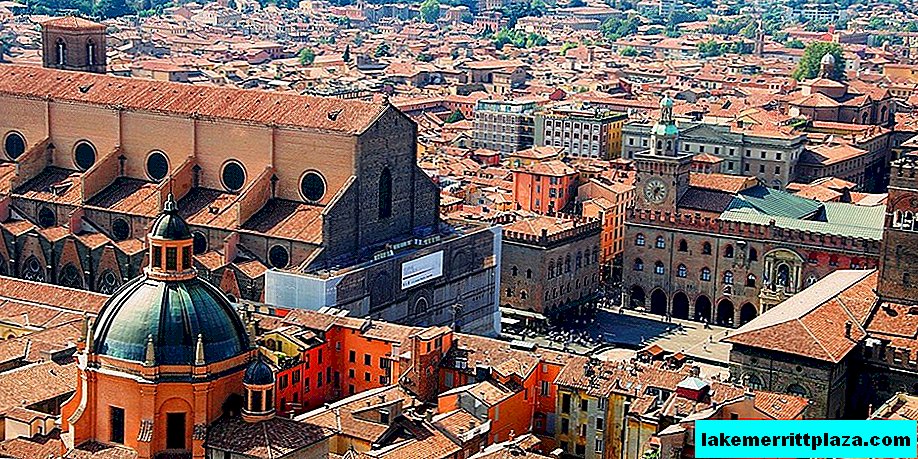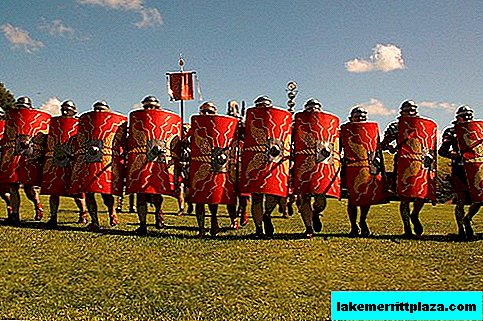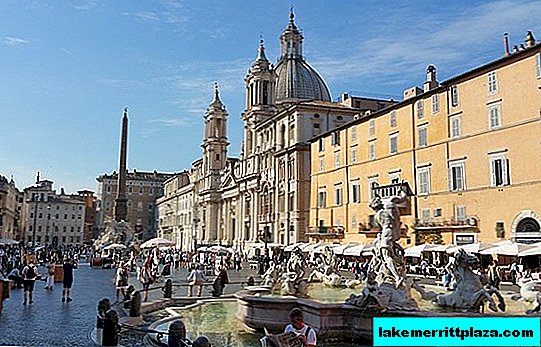In their last issue, Roman politicians, in their intrigues and debates, jumped to the point where Mark Anthony, Octavian and Lepidus, who joined them, came to the capital with the army and took away by force what could not be obtained by persuasion.
The educated triumvirate quickly dashed off a completely legal justification of his own existence, which distinguishes him from the first version of the “council of three”, a sample of Caesar, Pompey and Crassus - there were no laws on its creation, and formally this meeting of respected people was nothing more than an ordinary friendly party .
We recommend reading:
In the same case, the guys approached the issue more thoughtfully and toughly. Immediately after the creation of the triumvirate, proskriptations began that pursued several goals at once. First, so that the sad story does not repeat with the murdered Guy Julius, all the troublemakers and their sympathizers should be immediately pressed to the nail. Secondly, many individuals triumvirate simply did not like the very fact of its existence, therefore, this process was wanted to stop. Thirdly, since they promised to find and punish Caesar’s killers, who by that time had successfully entrenched themselves with troops in Greece, they should have done this, and the war, as you know, is very expensive.
The property of those executed by law should immediately go under the hammer to everyone, and the money should go to the treasury (well, a small percentage of respected people, of course).
The first to fall under the rink of repression was Cicero, whom Anthony did not forget and did not forgive - he had spoiled too much blood at the time. The old politician hastened to get away to Greece, to his old friends Brutus and Cassius, but did not have time. Mark’s head and hands were delivered to the murdered man, for some time his dear little wife was having fun with them (we already talked about the moral character and beautiful character), after which Anthony proudly dragged the cut off head to the Forum and ordered to fix it higher so that everyone could see that as happens with people bothering him. In vain did Cicero hope for the help of one of the triumvirs - Octavian, who was so eagerly praised by him, that same “divine youth”, an athlete, a student, a Komsomol member, and just a handsome man. Guy Julius very pragmatically considered that Cicero played his role, which means “the Moor can leave”, and did not lift a finger for his salvation. Late in time, the old man understood whom he had helped settle down in Roman politics.
Measures to intimidate and terrorize senators and other citizens were not particularly successful. No, the public triumph and silenced everyone triumvirate mastered. But to collect enough money is not very. The soldiers, who were sent to arrest the unfortunate from the proxy list, were not embarrassed in the robbery and simultaneously pulled out all movable property from houses and villas. Real estate, however, was utterly frightened by the rich people from among those Romans whom tyranny had not yet touched, were not eager to buy - why would the triumvirate once again catch my eye and declare her financial security?
Therefore, it was necessary to introduce additional taxes and requisitions from the population, and at the same time simply squeeze the property under a convenient pretext from those senators who, it seems, did not work out for capital punishment, but still did not come out with a face.
Meanwhile, the murderers of the dictator in Greece never regretted leaving the capital. The Athenians greeted them with joy, even slightly exceeding the limits of the rational. Quickly built bronze statues of Brutus and Cassius were installed in the AcropolisRoman teenagers who were trained in the cradle of ancient culture (including Horace, by the way), hastened to declare them their idols, but since you won’t win the youths, all the local legions, including those located in Macedonia, also went to the conspirators. Among other things, a couple of tax cars and another small army came from Asia.
So at that moment when the triumvirate did solve his financial problems, Caesar’s killers were all right. The active Cassius managed to hit the road to Syria, in which year after year there were local showdowns and rebellions that Gaius Julius tried to suppress, and solved the problem with a kind word and irony, taking up 8 legions and a small detachment of horse archers as a gift from the Parthians highly respected for past merits. After he jumped into Palestine, intercepted and joined his army 4 more legions sent from Egypt to one of the many separatist patricians who tried to seize the opportunity and organize their little tyranny on the fragments of the republic, and then went on a visit to the aforementioned ruler. He suddenly died of a large amount of metal in the body, and all the property of the conquered province and at the same time the surviving pieces of her army replenished the bottomless bins of Cassia.
He really was going to visit Egypt, to have a few words with Cleopatra, who had almost turned gray from trying not to quarrel with any of the hostile factions that had proliferated in abundance during the civil war, but did not have time. A panic message came from Greece from Brutus, who said that he was very happy for Cassius and his successes, but he must urgently return, since the triumvirate is fighting them. While his colleague had fun with pleasant and useful trips to the provinces of the Republic, Brutus was preparing for defense, before that he executed Brother Anthony, who had successfully fallen into his hands.
In 42 BC, the Triumvirate coalition opposed the forces of the conspirators in Greece.
What will be the dictators against the Republicans?
We will tell you soon.
History Fun for Italy for Me.








